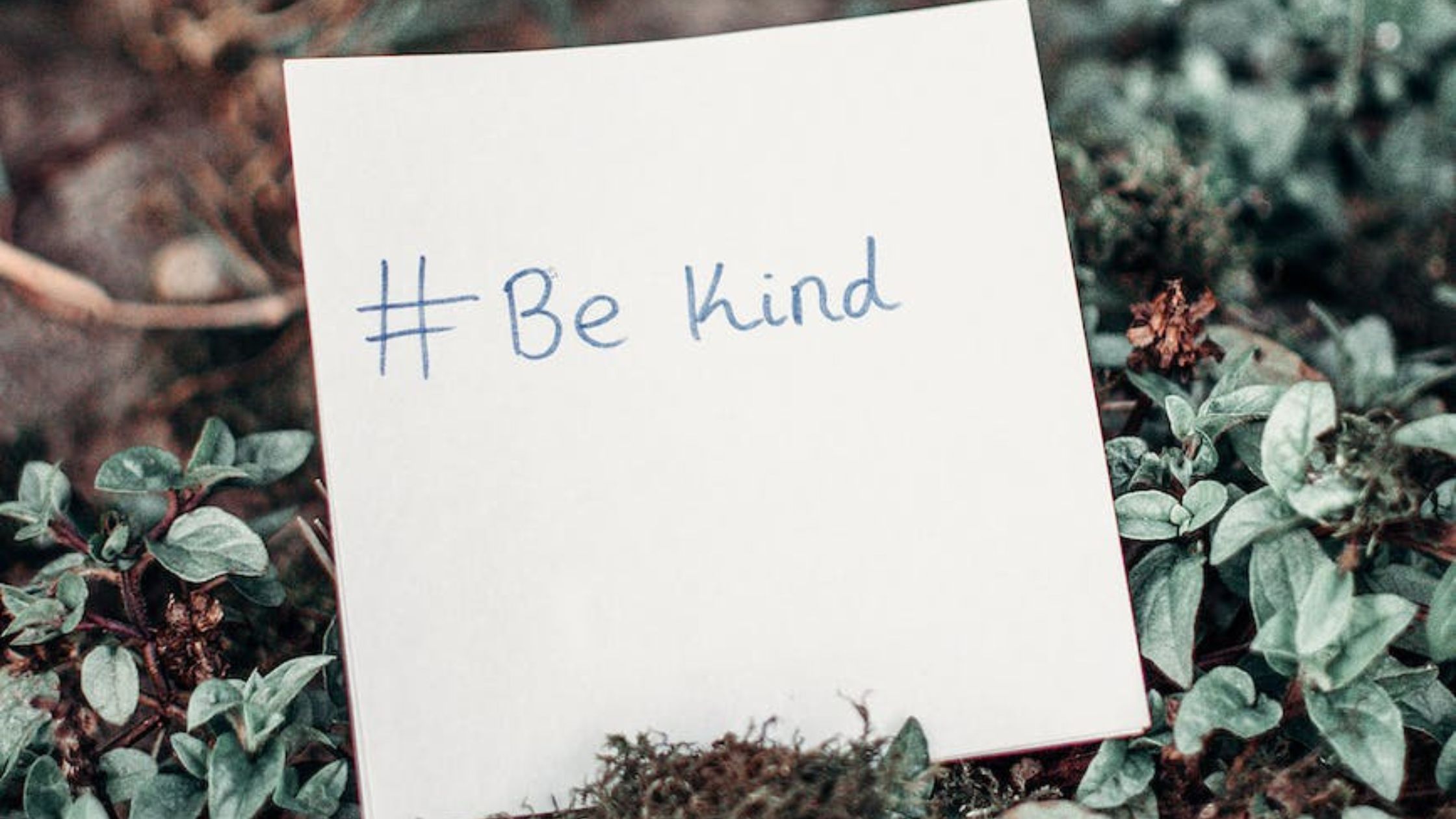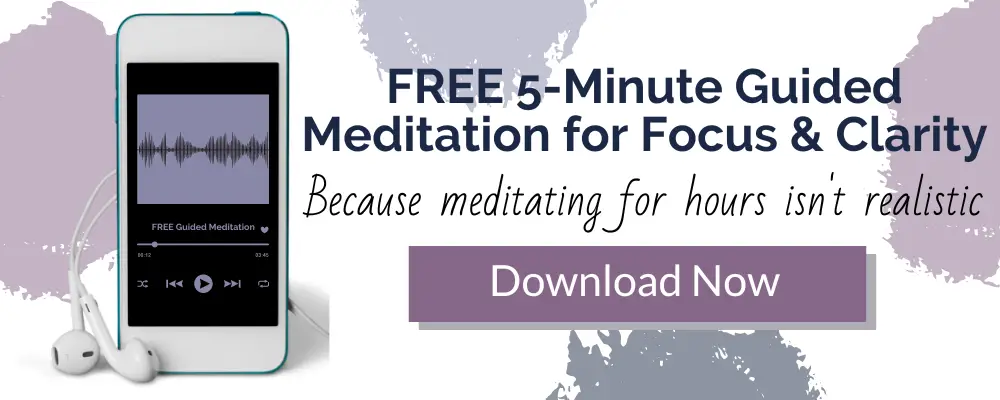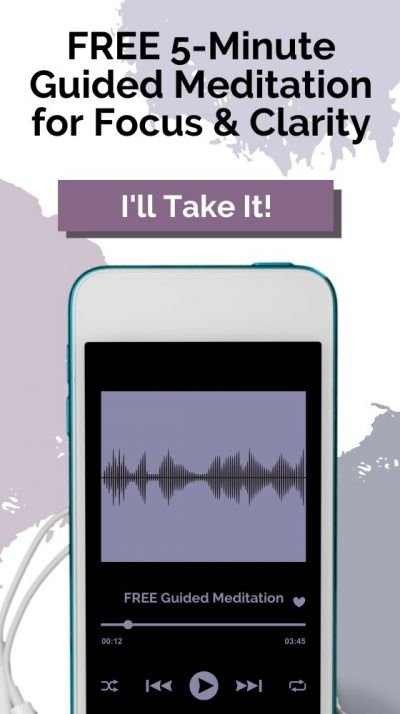The Ultimate Guide To Loving Kindness Meditation

Table of Contents
- What Is Loving-Kindness Meditation?
- Loving-Kindness Meditation Benefits
- How to Practice Loving-Kindness Meditation
- Variations and Modifiers
- Tips for a More Effective Loving Kindness Meditation Practice
- Scientific Evidence for the Benefits of Loving-Kindness Meditation
- Add In More Kindness Everyday
- Frequently Asked Questions
- Try It For Yourself
Loving kindness meditation, also known as metta meditation, is a type of mindfulness meditation that cultivates positive emotions, like love, gratitude, and compassion towards oneself and others.
It comes from the Buddhist tradition, but it has been around for thousands of years in various cultures and spiritual traditions, including Buddhism, Hinduism, and Jainism.
This type of meditation has many benefits, including reduced stress and anxiety, improved mood and well-being, and physical health benefits.
What Is Loving-Kindness Meditation?
Loving-kindness meditation uses visualizations or mantras to send feelings of goodwill and compassion towards oneself and others. These phrases used start with “may I” or “may you” and focus on different groups of people starting with oneself, loved ones, neutral people, and even difficult people.
Loving-Kindness Meditation Benefits
The benefits of LKM can vary from person to person and may depend on a variety of factors, including how often you practice. Even if you’re short on time, research suggests that even a few minutes of meditation each day can have positive effects on your health.
Social & Relationship Benefits
This technique can help people have better relationships and social interactions by making them feel more grateful, empathetic, and compassionate toward others. This makes it easier to understand and connect with other people.
Other benefits include:
-
- Improves social interactions and relationships
- Increases resilience and ability to cope with difficult situations
- Enhances emotional intelligence
- Increases sense community with others and the world.
- Reduces feelings of anger, hostility, and resentment
- Increases feelings of love and compassion
- Enhances empathy and connection with others
- Helps reduce feelings of loneliness and isolation
- Reduces self-criticism
- Boosts self-esteem and self-compassion
Mental & Emotional Benefits
Research has shown that this type of meditation can help you control your emotions. It can reduce feelings of stress and anxiety, and improve mood and well-being.
Other benefits can also include:
-
- Reduces stress and anxiety
- Improves emotional regulation
- Improves focus and attention
- Increases feelings of gratitude
- Increases gray matter in the brain
- Reduces symptoms of depression
- Reduces symptoms of PTSD
- Helps to overcome addiction and negative self-destructive habits
- Improves memory and brain function
- Increases levels of positive emotions
Physical Benefits
LKM has positive effects on your physical health because it reduces stress, which can be the root cause in many medical issues.
Physical health benefits can include:
-
- Lowers blood pressure
- Helps manage pain
- Improves heart health
- Improves sleep quality
- Enhances immune system function
- Enhances physical health and energy
- Decreases inflammation
- Improves digestion
- Lowers cortisol levels
- Improves lung function

How to Practice Loving-Kindness Meditation
By following this step-by-step script, you can begin to cultivate a greater sense of love, generosity, and compassion toward yourself and others.
- Find a quiet, peaceful place to sit. You can sit on a cushion or a chair with your back straight and your feet flat on the ground.
- Take a few deep breaths and allow yourself to relax. Focus on your breath, and let go of any thoughts or distractions.
- Begin by directing love towards yourself. Visualize yourself full of love. Repeat the following phrases silently to yourself or out loud: “May I be happy. May I be healthy. May I be peaceful. May I be free from suffering.” Visualize yourself overflowing with the feeling of love and kindness like its a glowing light pouring out of you.
- Once you feel a sense of love and kindness towards yourself, you can extend it to others. Choose a person or a group of people you would like to offer kindness to. Repeat the same phrases as above, replacing “I” with “you.” “May you be happy. May you be healthy. May you be peaceful. May you be free from suffering.” Visualize sending them a glowing beam of kindness that fills them.
- If you find it difficult to visualize or connect with the phrases, you can try to generate the feeling of love in your heart. Imagine a warm, glowing light in your chest, expanding and radiating outwards towards yourself and others.
- It is important to maintain a sense of sincerity and genuine intention. Don’t worry if you don’t feel anything at first; just keep trying with an open heart and an open mind and the positive emotions will build.
- When you are ready to end, take a few deep breaths and allow yourself to come back to the present moment. Take some time to reflect on your experience and the feelings that arose during your meditation.
For beginners, it can be helpful to start with shorter meditation sessions, such as 5-10 minutes, and gradually increase the duration as you become more comfortable. It can also be helpful to find a guided meditation or use a meditation app to help you get started.
Variations and Modifiers
You can adjust the meditation, depending on personal preferences and needs.
For example, some people prefer to visualize sending and receiving love instead of using the repeated phrases. You can imagine this love as a beam of light similar to a rainbow, or a glow that grows from deep inside.
If using the phrases helps keep you focused you can repeat the phrases, out loud, instead of using them silently.
The phrases you use can also be personalized. You can use a variety of phrases to cultivate positive emotions, feelings of love, joy, and compassion towards yourself and others. Here are some examples of phrases you can use:
-
- May I be…
- Strong
- Safe
- Successful
- loved
- Protected
- Free from pain
- Abundant
- Grateful for everyday
It is important to choose phrases that resonate with you and feel meaningful. If you find that a particular phrase is not working for you, feel free to change it or choose a different one. The key is to cultivate a sincere intention to offer love and empathy to yourself and others.
You can also extend your kindness to a variety of different people, groups, or even all beings, including those you may have difficulty with. Repeat the same phrases as above, replacing “you” with the following:
-
- May my loved ones be …
- May all beings be …
- May my coworkers be…
- May my enemies be…
- May those in need be…
Tips for a More Effective Loving Kindness Meditation Practice
Adding these tips to your meditation will help keep you from getting frustrated and make it easier to stay committed to creating a daily habit.
Start With Self-Compassion:
Begin by directing love towards yourself. This can help you cultivate a sense of self-love and acceptance, which can make it easier to extend love and kindness to others.
Take Baby Steps:
If you are new to meditation, start with a shorter duration and gradually increase the time as you become more comfortable.
Create A Habit:
Consistency is key when it comes to any form of meditation. Set aside a specific time each day. Aim to meditate daily, even if it’s just for a few minutes.
Create a Peaceful Environment:
Choose a quiet, peaceful environment. This can help you focus and deepen your meditation experience.
Use Visual Aids:
You can use visual aids such as images or photos of loved ones, or objects that remind you of love and kindness, to help you focus your attention and cultivate positive feelings during your meditation.
Cultivate Interest and Openness:
Approach mindfulness with an open mind and a sense of curiosity. Give yourself permission to feel whatever emotions and sensations come up.
Be Patient and Compassionate:
Remember that cultivating positive emotions towards yourself and others takes time. Be patient with yourself and offer yourself compassion and kindness as you continue.
Try Habit Chaining
Try pairing meditation with another habit you already have, like brushing your teeth or taking a shower. By pairing it with a task you already complete on a daily basis, you build in a reliable reminder.
By including these tips you can deepen your experience and cultivate a greater sense of love, kindness, and compassion towards yourself and others.
Scientific Evidence for the Benefits of Loving-Kindness Meditation
Loving-kindness meditation has been studied extensively over the past few decades. Researchers have found that creating a regular habit can have many benefits for your emotional and physical wellbeing. Studies have shown that using this technique can lead to increased feelings of happiness, compassion, and empathy, as well as reduced stress, anxiety, and depression.
One study conducted by Barbara Fredrickson and her colleagues at the University of North Carolina found that regular use of these types of meditation led to increased levels of positive emotions and reduced symptoms of depression. Other studies have found that a regular routine can help reduce symptoms of PTSD, improve sleep quality, and even lower blood pressure.
Some of the benefits may come from the fact that this technique can help people feel happier and more connected to others. When used regularly, it can also help people develop a more compassionate and empathetic perspective, which can improve relationships with others and reduce feelings of isolation.
Add In More Kindness Everyday
You can also add random acts of kindness to your daily activities. Try offering kindness to someone you interact with each day, like a cashier or a coworker.
Small acts of kindness can go a long way in making others feel seen and appreciated. There are many different ways to extend compassion to others. Here are some examples you can try:

- Engage in acts of service or volunteer work to help others in need.
- Smile at a stranger.
- Pay for the person’s order behind you in line at a coffee shop or drive-thru.
- Leave a kind note for a coworker or loved one.
- Compliment someone on their outfit or hair.
- Hold the door open for someone.
- Help someone carry their groceries.
- Let someone merge in front of you in traffic.
- Offer to help a neighbor with their yard work or home repairs.
- Send a thoughtful text or message to someone you haven’t talked to in a while.
- Give a generous tip to a service worker.
- Offer to babysit for a friend or family member who needs a break.
- Donate to a local charity or non-profit organization.
- Leave a positive review for a small business you love.
- Share a personal story or experience with someone who needs support or encouragement.
Frequently Asked Questions
How Much Time is Required?
Metta meditation can be done for just a few minutes a day, or for longer periods of time if desired. Even a short time spent on this exercise can have benefits, so it’s important to find a routine that works for you.
Why Should I Try It?
Metta meditation is an easy-to-learn exercise that helps your emotional and physical wellness in many ways. A regular meditation practice can help you feel better by reducing stress and anxiety, boosting your mood, and creating more positive emotions.
Why Does It Work?
The benefits may be due to its ability to cultivate positive emotions and increase feelings of connectedness with others. By focusing on feelings of love and compassion, you can develop a more compassionate and empathetic perspective, which can improve relationships with others and reduce feelings of isolation.
Try It For Yourself
This is a simple yet powerful technique that can have many benefits for both mental health and physical health. Applying this technique regularly can help lower stress and anxiety and improve your mood and wellbeing. By cultivating feelings of love and compassion, you can develop a more compassionate and empathetic perspective, which can improve relationships with others and reduce feelings of isolation.
If you’re interested in trying mindfulness meditation, there’s no time like the present. Start with just a few minutes a day and gradually build up the time you spend. For information on other types of mindfulness meditation like candle gazing, raisin meditation or visualization check out my article Unlock Calm With 10 Mindfulness Meditation Exercises.













